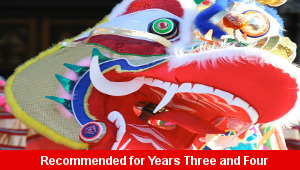Home > Key Stage Two > English > Reading > Comprehension > Classic Fiction
Oliver Twist

This English reading teaching pack for Key Stage Two gets the children to read and answer comprehension questions about the structure and content of a classic work of fiction by a significant author.
The class can select and record predictions as to how the narrative content might develop following the character actions and sequence of events.
Download this teaching pack including a shared reading text, activity worksheets and an interactive presentation to teach the children to read and answer comprehension questions about the structure and content of a classic work of fiction by a significant author
Activities in this teaching pack include a shared reading text of an extract from the story of Oliver Twist by Charles Dickens and a set of differentiated worksheets to answer key questions about the structure and content of a section from a classic work of narrative fiction.
The interactive presentation gets the children to explore how to read and answer comprehension questions about the structure and content of a classic work of fiction by a significant author.
This lesson can support development in reading and understanding the structure and format of a classic work of fiction by a significant author. There are teaching activities for shared learning, differentiated worksheets to support independent learning and interactive presentations to introduce concepts and key skills.
-

Changing Seasons
Investigate changes that can happen to the natural world during the four seasons of the year and reflect on similar changes that can occur in people’s lives
-

Chinese Dragons
Select and combine different mouldable and other materials to create masks representing dragons that can be worn during a performance dance
-

Suffix Combinations
Identify and record how to build a range of special words by using different combinations of roots and suffixes
-

Ancient Greek Games
Explore the development of the Olympic Games that began during the history of Ancient Greece and make comparisons with modern competitions
